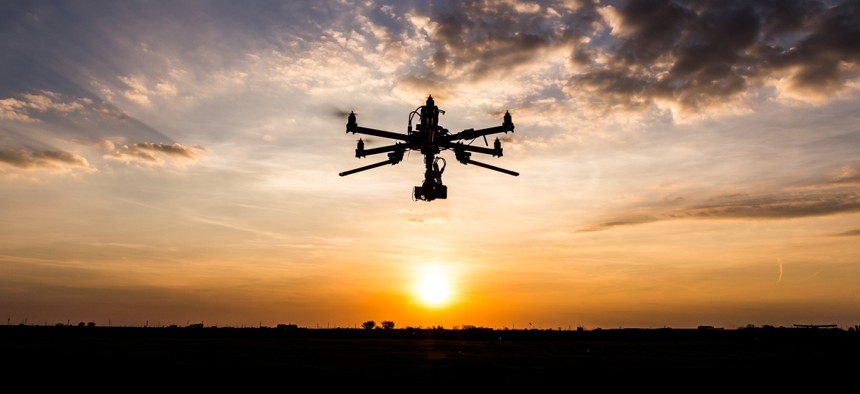Pentagon Innovation Group Aims to Protect Military Bases From Rogue Drones

concept w/Shutterstock.com
DIUx awarded Dedrone a contract to test the group’s drone detection technology at military bases across the country.
The Pentagon’s innovation office on Tuesday announced a partnership with the airspace security company Dedrone to improve how the military defends U.S. skies against rogue drones.
The Defense Innovation Unit Experimental, known as DIUx, awarded Dedrone a $426,000 contract to test the group’s drone detection technology at military bases across the country.
Using an array of cameras, microphones, radar and radio-frequency sensors, the platform can spot a drone, determine its flight path, pick up its communications and pinpoint the location of its pilot. Once it detects enemy craft, the system can automatically launch countermeasures to take it out of the air.
Rogue drones not only threaten Americans with enemy surveillance, but the also present clear safety risks to legal aircraft. The Army, Air Force and Coast Guard pilots have all narrowly avoided disastrous collisions with commercial drones, and last year an Iranian drone disrupted a Central Command flight test in Florida.
Last summer, a pilot program between Dedrone and the Pentagon detected nearly 100 unauthorized drones over the course of two months in the no-fly zone around Joint Base Myer-Henderson Hall in Arlington, Virginia.
“Anecdotal information of drone incidents near military bases are leaving military security personnel with insufficient details about the nature of airspace threats,” said Dedrone CEO Joerg Lamprechtin a statement. “Our partnership with DIUx is an opportunity for us to work directly with military installations and inform defense leaders on how to protect military airspace against rogue drone pilots.”
The Federal Aviation Administration estimated there were more than 1.1 million drones operating in the U.S. last year, and it expects that number to double by 2020. As the agency rolls back regulations restricting amateur drone pilots from flying in protected airspace, the skies will likely grow even more cluttered.
“Defense cannot exist without detection, and Dedrone technology provides an opportunity to proactively detect drones and understand airspace breaches before any defeat technology needs to be deployed,” the company wrote in its announcement.






